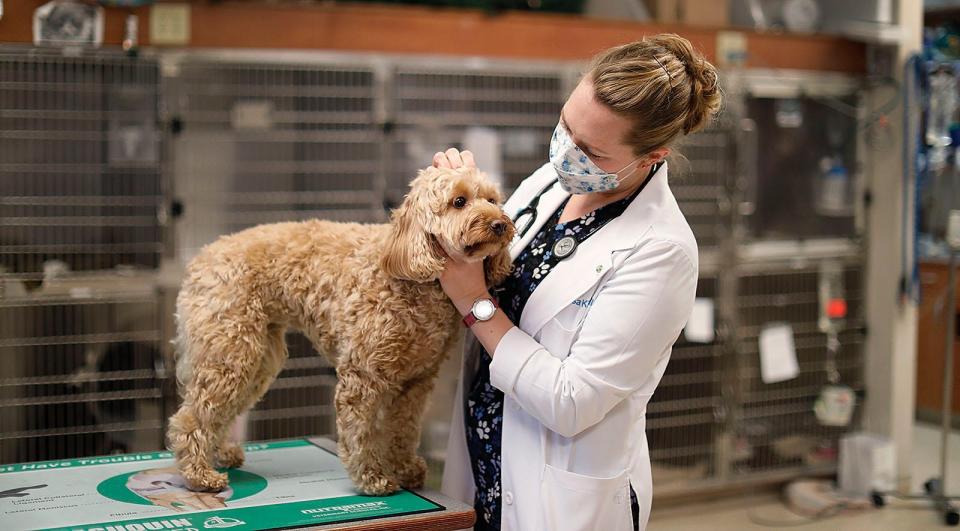Mystery dog illness: What to know about the antibiotic chloramphenicol as a possible cure
As veterinarians and scientists work to find out the cause of the mystery dog respiratory illness, some people are pointing to a powerful antibiotic as a potential cure.
The illness reported in 14 states starts off with symptoms consistent with typical Canine Infectious Respiratory Disease Complex (CIRDC), but is resistant to typical treatments.
One California family told "Good Morning America" that chloramphenicol helped bring their golden retriever Ike out of the veterinary hospital after he became sick while competing in dog shows.
They aren't the only ones saying it could help. Posts about the drug have circulated in social media groups with people seeking answers about this mysterious dog illness. But despite showing promise with pups like Ike, experts warn against jumping to the drug as a first defense.
Here is what to know about chloramphenicol as a potential cure for the canine respiratory illness:
Mystery dog illness: Is it safe to board your pet this holiday season?

What is chloramphenicol?
Chloramphenicol is a potent antibiotic used in humans for eye infections, typhoid and cholera, according to a StatPearls article in the National Library of Medicine.
It has caused fatal aplastic anemia from topical administration, meaning it is dangerous for humans to even handle the drug.
Director of virtual medicine at Bond Vet Dr. Lisa Lippman said that it has potential side effects in dogs as well, like causing hind-end weakness.
Because of its toxicity and potential side effects, it is usually reserved for severe infections.
"I would say it's not by any means a first line antibiotic; it's not what we're reaching for to treat them automatically," Lippman said. "If you and your veterinarian decide that, you know, that chloramphenicol is a good choice for your pet, then, absolutely, I would use it without hesitation."

Experts say antibiotics may not be necessary to treat mystery dog illness
Dr. J. Scott Weese, a professor at Ontario Veterinary College and an expert in infectious animal diseases, told USA TODAY in an emailed statement that dogs with respiratory illnesses typically don't need an antibiotic.
In some cases, as he explains in his Worms & Germs Blog, dogs will get a secondary infection like pneumonia, which is when antibiotics become necessary.
Even in those cases, there are other options available that might be better suited to treat the dog, according to Weese.
"I’d guess that if we used chloramphenicol routinely in dogs we’d end up harming more dogs than we’d help," he said.
Medical recommendations should be made by a veterinarian
Ultimately, recommendations for what antibiotic to use, if any, will be made by an attending veterinarian, according to Dr. Rena Carlson, president of the American Veterinary Medical Association.
As the mystery illness shows up as a normal kennel cough for some dogs, but develops into a more severe case through a secondary infection for others, treatment should be decided specially for each pet.
"The range of disease caused by Canine Infectious Respiratory Disease Complex (CIRDC) is broad (from mild to severe) and different infectious agents may be involved—some viral (no antibiotics needed) and some bacterial (antibiotic chosen based on the infectious agent)," Carlson said in an emailed statement to USA TODAY.
This article originally appeared on USA TODAY: Mystery dog illness: Is the antibiotic chloramphenicol a cure?

